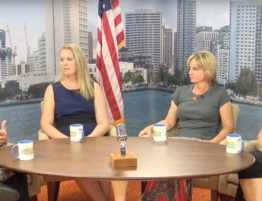When did the term “reverse mortgage” become a bad word? Clients seem scared to ask me about it, but it’s actually a very important term to understand.
So, are reverse mortgages a scam? The short answer is no. Reverse mortgages, when performed ethically and applied in the right situations, can help seniors gain access to the equity in their home so they can continue affording and living in it.
Why Do They Have a Bad Reputation?
As the saying goes, it only takes one bad apple to spoil the bunch. With reverse mortgages, there are some unscrupulous lenders who trick elderly individuals into purchasing ill-fitting or exploitive loans. They run scams and provide false information to lock individuals into expensive, complex, and convoluted mortgage terms that greatly profit the lender.
Fortunately, communities are fighting back. More programs are being created to educate seniors about predatory scams and share the truth about reverse mortgages.
What Exactly is a Reverse Mortgage?
Unlike a traditional mortgage, the homeowner does not have to make monthly payments to the lender. Repayment only takes place when the homeowner sells the property, moves out, or passes away. The funds released can be given to the homeowner (reverse mortgage recipient) in a variety of forms: a line of credit, a lump sum, or a monthly increment.
Reverse mortgages are only available to individuals who are at least 62 years old and who want to borrow from their personal principal residence. It is a lending tool designed to help seniors convert the equity in their home to an income source.
When is a Reverse Mortgage Appropriate?
The answer to this will vary from lender to lender and attorney to attorney.
There are two main situations when I would recommend a reverse mortgage to my clients:
- When a homeowner is on the brink of borrowing money from family or friends because they have no significant retirement funds for day-to-day use and cannot live on social security payments alone.
- When a homeowner suffers from a medical condition in which the cost of assisted daily care (help with bathing, toileting, eating, dressing, etc.) is forcing the senior to put their house on the market.
A safe reverse mortgage option for seniors is the Home Equity Conversion Mortgage (HECM), provided by the Federal Housing Administration (FHA). HECM FHA mortgages cannot exceed $680,000, and recipients must speak with a HECM counselor before they can complete the loan.
This counseling session diminishes the likelihood that a senior would be exposed to corporate referral fees or disreputable sales tactics. Plus, HECM FHA mortgages build a 3-day cooling off period into their loans, which can be an additional fail-safe protection for seniors.
If you are unsure about a lender or reverse mortgage offer, here are some warning signs to look for.
How to Spot a Reverse Mortgage Scheme
- High pressure, long-winded, and aggressive sales tactics – Honest lenders will never intentionally create an unpleasant or stressful situation, nor should they give a long sales-pitch/monologue to pressure a client into saying yes.
- Predatory and emotionally manipulating sales tactics – There shouldn’t be any talk of limited-time offers, future promises, or dramatic emotional appeals.
- “Free Money” or “You cannot lose your home” – Scammers will create mailers and brochures that capitalize on false or incomplete statements to draw in an audience, but these are gross mischaracterizations of reverse mortgages.
- No mention of conditions, fees, or risks – Advertising material or lender paperwork with virtually no details and only gimmicky enticements is a big red flag. Reputable lenders will provide context, some neutral information, etc. so potential clients are actually informed.
- Skimming over second-to-die loan terms – Married couples should carefully review in whose name the reverse mortgage is taken and what happens if that individual passes away before or after their spouse. Quality lenders will take the time to review various scenarios with their clients before any paperwork is signed.
I truly hope this sheds some light on reverse mortgages and keeps you safe if you or your family choose to pursue one. While there are many things to be aware of, reverse mortgages were ultimately designed to benefit seniors and help them to continue living in their homes.
For additional information regarding seniors and reverse mortgages, please refer to the FBI’s tips against fraud or call the National Council on Aging at 800-510-0301.


















